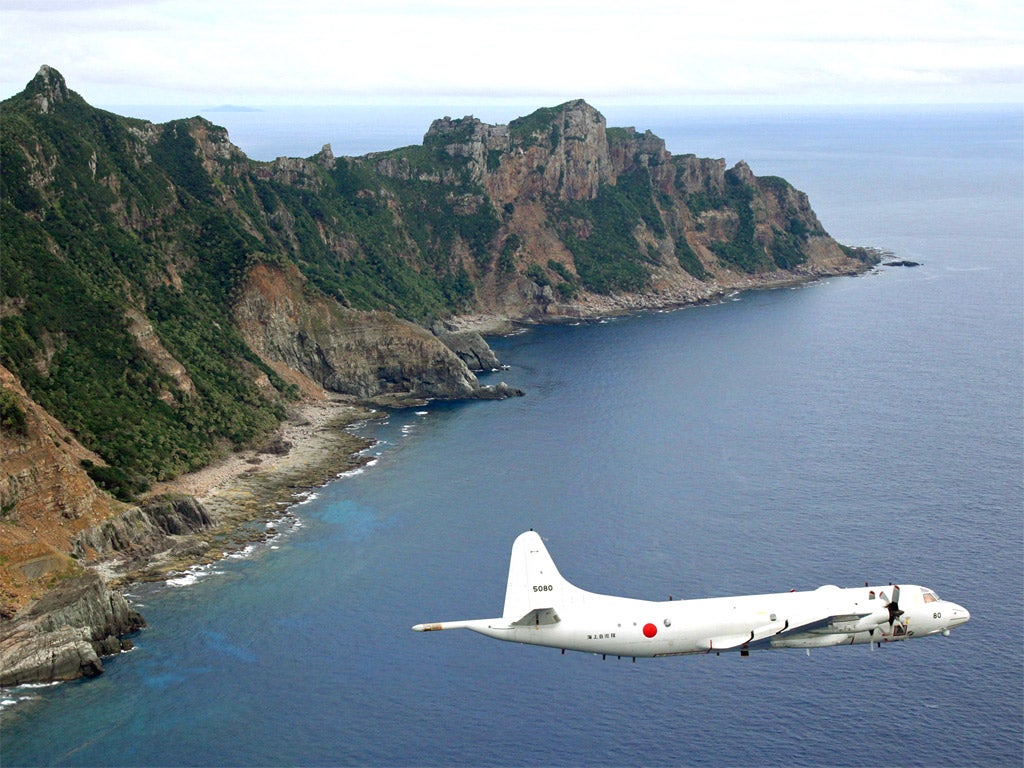Japan warns China of 'deteriorating' ties over East China Sea dispute
Tensions are building over China's actions in what it considers its territory

Japan has warned China on ties are deteriorating over disputed East China Sea islets, and China's envoy in Tokyo reiterated Beijing's stance that the specks of land were its territory and called for talks to resolve the dispute.
The diplomatic tussle comes amid simmering tension as China builds on outposts in the contested South China Sea, including what appear to be reinforced aircraft hangars, according to new satellite images.
Ties between Asia's two largest economies have been strained in recent days since Japan saw a growing number of Chinese coastguard and other government ships sailing near the East China Sea islets, called the Senkaku in Japan and Diaoyu in China.
The flurry of Chinese incursions into the waters follows a period of sustained pressure on China over its activities in the South China Sea, and China's criticism of what it sees as Japanese interference in that dispute.
Japanese Foreign Minister Fumio Kishida called in Chinese ambassador Cheng Yonghua for the second time since Friday and told him China was trying to change the status quo unilaterally, the Japanese foreign ministry said.
Mr Kishida told Cheng the environment surrounding Sino-Japanese ties was “deteriorating markedly”, the ministry said.
The Chinese diplomat said after the meeting that he had told Mr Kishida the islands, which are controlled by Japan, were an integral part of China's territory and the dispute should be resolved through dialogue.
“I told him ... it is natural that Chinese ships conduct activity in the waters,” Mr Cheng said.
Dozens of Chinese vessels sailed near the islands on the weekend raising alarm in Japan. Mr Cheng was called in by Japanese Vice Foreign Minister Shinsuke Sugiyama last Friday over the incursions into what Japan see as its territorial waters.
The United States, its Southeast Asian allies and Japan have questioned Chinese land reclamation on contested islands in the South China Sea, particularly since an international court rejected China's historic claims to most of that sea last month.
China has refused to recognise the court ruling on a case brought by the Philippines. Japan called on China to adhere to it, saying it was binding, but Beijing responded by warning Japan not to interfere.
Satellite images taken in late July over the South China Sea show that hangars constructed on Fiery Cross, Subi and Mischief Reefs in the Spratly islands, have room for any fighter jet in the Chinese air force, the Washington-based Center for Strategic and International Studies (CSIS) said.
The think-tank said in a report there was little evidence that China had deployed military aircraft to the outposts, but the “rapid construction” of reinforced hangars suggested that was likely to change.
“They are far thicker than you would build for any civilian purpose,” Gregory Poling, director of CSIS's Asia Maritime Transparency Initiative, told the New York Times, which first reported on the new images.
“They're reinforced to take a strike.”
A US navy commander said it had not been confirmed that the hangers were for military use, but uncertainty about them could add to tension.
“That increases the angst and the uncertainty, that lack of transparency, and that is generally destabilising as opposed to a stabilising action,” US Pacific Fleet Commander Admiral Scott Swift told reporters on a visit to the Chinese port city of Qingdao.
China claims most of the South China Sea, through which $5 trillion in ship-borne trade passes every year. The Philippines, Vietnam, Malaysia, Taiwan and Brunei have overlapping claims.
The United States has urged China and other claimants not to militarize their holdings there, prompting repeated denials from China that it is doing so. Instead, China has blamed US patrols and exercises for ramping up tension.
“China has indisputable sovereignty over the Spratly islands and nearby waters,” China's Defence Ministry said in a response to a request for comment on Tuesday.
“China has said many times, construction on the Spratly islands and reefs is multipurpose, mixed, and with the exception of necessary military defensive requirements, are more for serving all forms of civil needs,” it said.
Former Philippines President Fidel Ramos said he was optimistic about what he has described as an ice-breaking trip to Hong Kong during which he hoped to meet experts and officials in an effort to rekindle ties with China soured by the dispute.
“The idea is to use the South China Sea as a place to save lives, but not to kill people or to destroy lives,” he told reporters.
Separately, relations between China and another US ally, South Korea, have been strained in recent days by a decision by South Korea and the United States to deploy an advanced anti-missile defence system, to guard against North Korean attacks, that China fears could be used against its military.
Reuters
Join our commenting forum
Join thought-provoking conversations, follow other Independent readers and see their replies
Comments